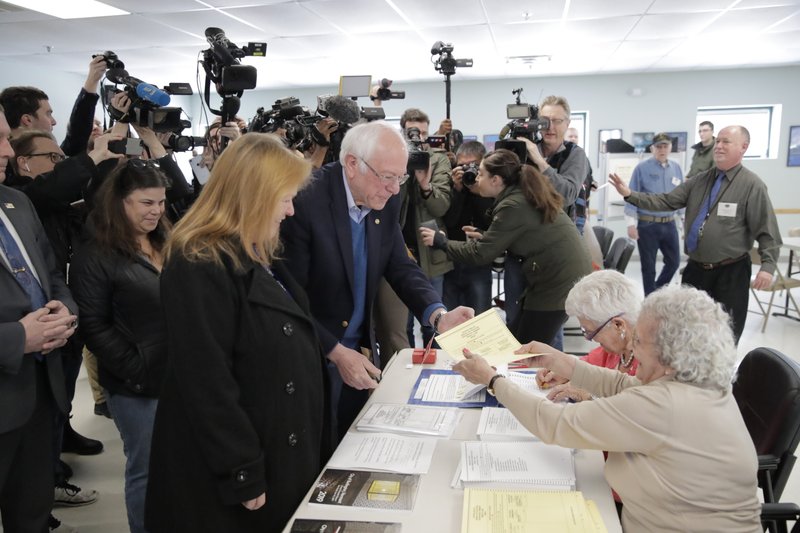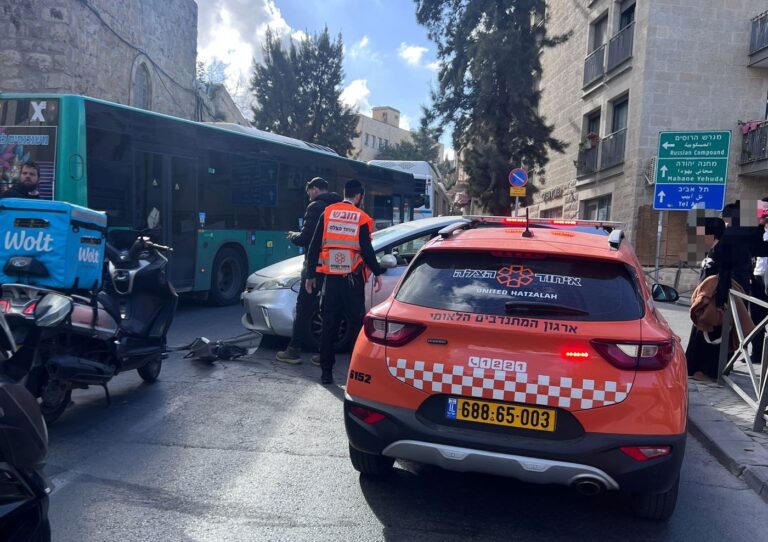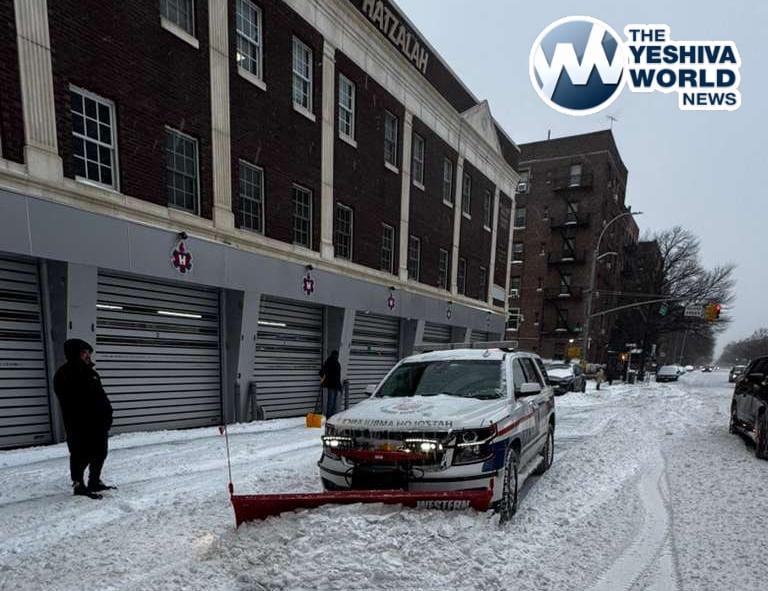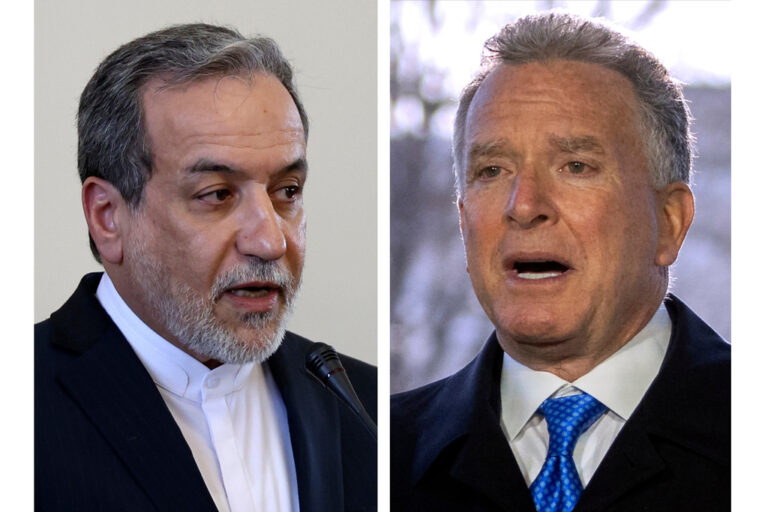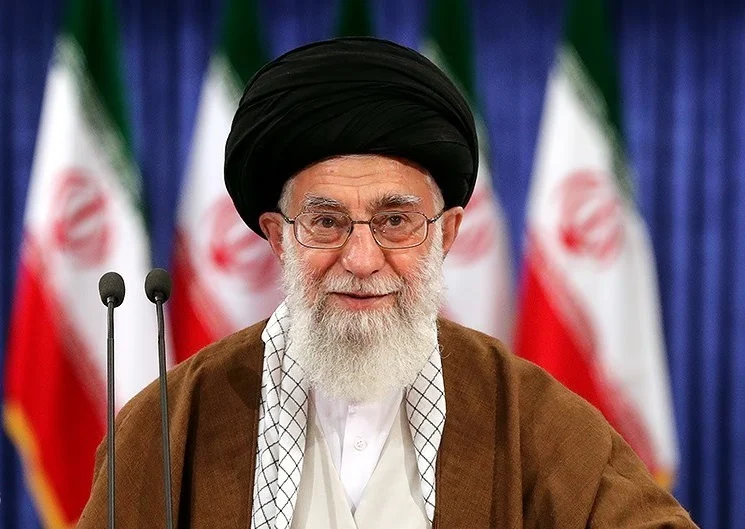Millions of voters from Maine to California headed to the polls on Super Tuesday, the delegate-rich prize in the fight for the Democratic presidential nomination that’s shaping up as a contest between two starkly different visions for the party’s future as it hurtles toward a November rematch with President Donald Trump.
Vermont Sen. Bernie Sanders, who has energized liberals and young voters, sought to pull away from the rest of the field, while former vice president Joe Biden hoped to ride a wave of momentum and endorsements to cement himself as the standard-bearer for the party’s moderate wing.
The two men, riding atop a rapidly shrinking Democratic field, have assembled coalitions of disparate demographics and political beliefs, and the day could help shape whether the nomination fight will stretch until the party’s convention this summer in Milwaukee.
But the 14 coast-to-coast contests seemed certain to provide several other twists and turns, including the first test of billionaire Mike Bloomberg’s massive spending in the Democratic race.
Bloomberg skipped the first four states, banking on more than half a billion dollars in advertising and ground operations in an unorthodox and untested method of securing support from moderates who may have bailed on Biden before the vice president revived his flagging campaign. The former New York City mayor and Massachusetts Sen. Elizabeth Warren loomed as spoilers as the candidates jockeyed to cross the voting threshold to secure delegates that could prolong the nominating battle.
The Democratic race has shifted dramatically over the past three days as Biden capitalized on his commanding South Carolina victory to persuade anxious establishment allies to rally behind his campaign. Amy Klobuchar and Pete Buttigieg abruptly ended their campaigns and endorsed Biden. Another former competitor, former Texas Rep. Beto O’Rourke, publicly backed Biden while a new wave of mayors, lawmakers and donors said they would support the former vice president.
Biden’s new supporters fanned out on morning television to praise him — Klobuchar on NBC’s “Today” show. O’Rourke on MSNBC’s “Morning Joe” — but another, perhaps more powerful voice was also deployed to support his candidacy: that of former President Barack Obama.
Obama has steadfastly declined to offer any endorsement during the primary process, but a super PAC supporting Biden organized calls featuring audio from a past speech in which Obama calls his former vice president “a statesman, leader who sees clearly the challenges facing America in a changing world.”
Amanda Loveday of Unite the Country PAC says the call is running through Tuesday in Alabama, Arkansas, North Carolina, Texas and Virginia. Several candidates in the race have run television ads featuring positive sentiments from Obama, although he has endorsed none.
A spokeswoman for Obama said the robocall from Biden’s super PAC did not amount to an endorsement and the former president’s office was not aware that the group planned to use the old audio.
Sanders and his closest advisers pushed back against the shift of party establishment and donor class toward Biden. Campaigning in Minnesota, Sanders sought to beat back Biden’s momentum with a welcoming message to Klobuchar and Buttigieg supporters.
“To all of Amy and Pete’s millions of supporters, the door is open. Come on in,” Sanders said. “We all share the understanding that together we are going to beat Donald Trump.”
And Trump himself, reveling in his role as pundit-in-chief, weigh in on the contest to choose his general election opponent. He followed up a screed at a North Carolina rally the night before — in which he delivered broadsides against all of the candidates — with tweets Tuesday morning focused on Bloomberg, claiming the billionaire could “never recover from his incompetent debate performances.”
Bloomberg’s stock is at risk of fading as Biden gains ground. But the billionaire will still be a major factor on Tuesday.
He spent much of last week campaigning in a handful of Southern and Western states where his aides say they believe he could notch a win, largely because he’s the only candidate who’s visited multiple times and pounded the local airwaves with ads. He focused on Alabama, Arkansas, North Carolina, Virginia, Tennessee and Texas.
He began Tuesday in Florida, which does not vote until March 17, acknowledging that he may not win any of the 14 contests and that he would need to capture the nomination at a brokered convention because “I don’t think I can win any other way.”
“You don’t have to win states, you have to win delegates,” Bloomberg said. He suggested that no one will get a majority of delegates and “then you go to a convention, and we’ll see what happens.”
Tuesday is the most anticipated of crossroads in the Democrats’ turbulent primary season as the party struggles to unify behind a clear message or messenger in its urgent quest to defeat the president.
On one side stands Sanders, a 78-year-old democratic socialist who has scored four consecutive first- or second-place finishes relying on an energized coalition drawn to his promise to transform the nation’s political and economic systems. On the other, Biden, a 77-year-old lifelong politician who was relishing his newfound momentum in a campaign that has struggled at times to excite voters with a message emphasizing a pragmatic approach to governing and modest change.
For the former vice president, the wave of new support could not have come at a better time.
Just two days earlier, a loss in South Carolina would have effectively killed his candidacy. But 48 hours after a blowout victory, the former vice president stood on stage in Dallas, in the heart of one of Super Tuesday’s crown jewels backed by three former rivals and a growing collection of donors, activists and elected officials.
Biden entered Super Tuesday confident in his ability to win states that resemble South Carolina’s demographic makeup: those with large African-American and white moderate populations. That makes Alabama, North Carolina, Arkansas, Tennessee and Virginia potential Biden victories, even in a splintered field.
Yet some of Super Tuesday’s more valuable terrain is less forgiving.
Sanders has predicted victory in California, the day’s largest delegate prize. The state, like delegate-rich Texas, plays to his strengths given their significant factions of liberal whites, large urban areas with younger voters and strong Latino populations. Sanders also enjoys obvious advantages in his home state of Vermont, and in neighboring Massachusetts, where he’s eyeing a knockout blow against progressive rival Warren in her home state.
And Biden’s strategy for the coming days, which relies on media coverage and dispatching his new collection of surrogates, reflects a stark reality: Compared to Sanders and Bloomberg, he is understaffed, underfunded and almost out of time as he fights to transform his sole South Carolina victory into a national movement.
While Tuesday’s outcome is uncertain, Biden’s team was confident that the fast-moving trajectory of the race was moving their way. One complication: A significant number of votes were cast in the days and weeks leading up to Tuesday’s elections when Buttigieg, Klobuchar and Tom Steyer were still in the race.
At least 1.4 million people have already voted in California’s Democratic primary, for example, according to data collected by The Associated Press. In Texas, more than 1 million early Democratic votes have been cast. And in Virginia, nearly 28,000 people voted early, twice as many as in 2016.
Through four primary contests, the AP allocated 60 delegates to Sanders, 54 to Biden and eight to Warren.
The first four states were always more about momentum than math. Super Tuesday states offer a trove of 1,344 new delegates based on how candidates finish. Just 155 delegates have been awarded so far.
(AP)

